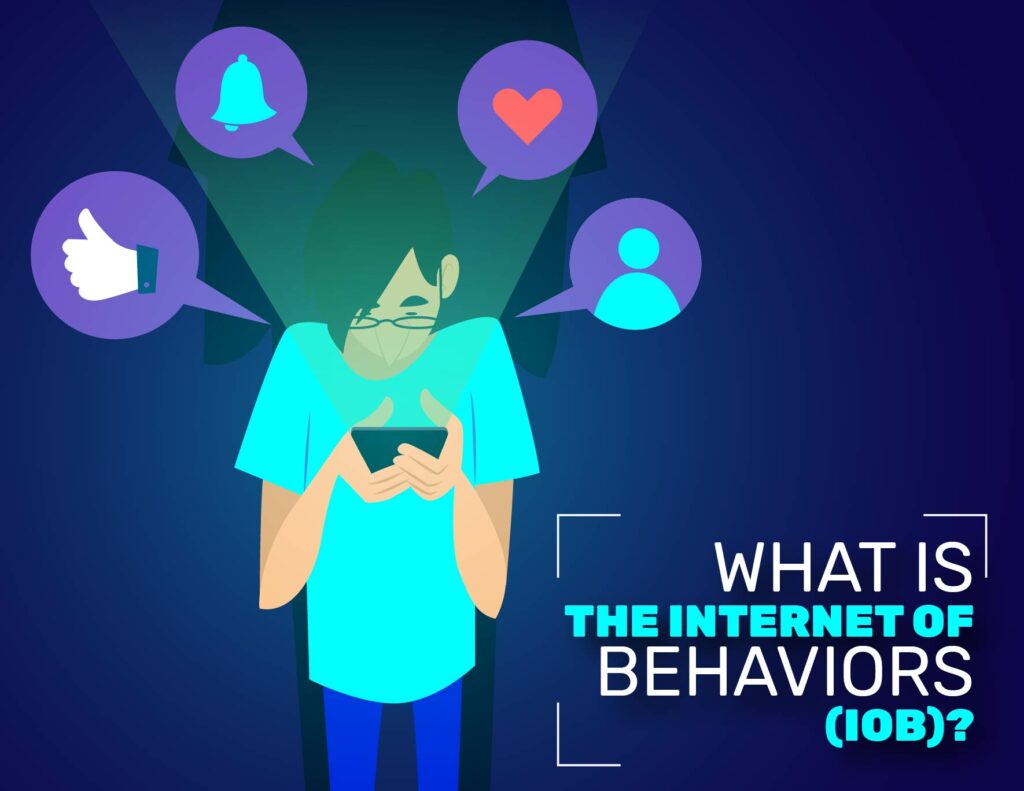Internet of Behaviors (IoB) is an area of research and development that seeks to understand how, when, and why humans use technology to make purchasing decisions. IoB combines three fields of study: behavioral science, perimeter analysis, and the Internet of Things (IoT).
IoB platforms are designed to collect, add, and analyze data from various sources, including digital home devices, laptops, and online human activities. The data is then analyzed in terms of behavioral psychology to look for patterns that marketing and sales teams can use to influence future consumer behavior.
An essential objective of IoB is to help marketers understand and monetize the massive amount of data produced by network nodes on the Internet of Things.
The Internet of Behaviors is expected to play an important role in e-commerce, healthcare, customer experience management (CXM), and search engine optimization (SEO).
Possible IoB use cases include:
Market products more effectively to customers: Many digital marketing agencies have already used analytics tools to find information that reveals common consumer behaviors. With IoB, marketers can analyze customer buying habits across platforms, gain access to previously unattainable data, redefine the value chain, and even provide real-time point-of-sale notifications and targeted ads.
Improve user experience: Designing UX is a crucial part of sales. With the knowledge provided by IoB, organizations have a better understanding of people’s attitudes toward specific products or services, which facilitates the resolution of customer concerns.
Improve public health: Manufacturing companies are already using sensors and RFID tags to determine if on-site employees wash their hands regularly. In addition, computer vision can determine whether employees comply with mask protocol or social distancing directives. And in the healthcare industry, providers can measure patients’ activation and commitment efforts.
Improve public safety: Monitoring public safety is creating exciting new opportunities in all industries. For example, in one application, vehicle telematics is implemented to track driver behavior and mark erratic or dangerous behaviors.
The term IoB is credited to the technology research company Gartner and explained in Gartner’s «Key Strategic Technology Trends for 2021». The consultant attributes the concept of using IoT data to influence behavior to Göte Nymanof, professor of psychology at the University of Helsinki.
The research firm notes that local laws will play an essential role in how public and private organizations can use data to influence behavior. Gartner also says that the whole IoB concept risks being rejected unless its initiatives are designed to provide consumers with added value. In addition, concerns about the privacy and possible invasiveness of an IoB have been raised in some quarters and are likely to need to be addressed for wider adoption.
Ethical issues of the IoB
The problem that can occur with this technology is not technical. IoB faces the adversity of how data is collected, stored, and used. Their level of access is difficult to control, and therefore all companies should be aware of the responsibility of using IoB. Google, Facebook, and Amazon continue to purchase software that potentially takes the user usage information of a single application to their entire online ecosystem without their permission. This presents significant legal and security risks to privacy rights, varying between jurisdictions worldwide.
Behavioral data can allow cybercriminals to access sensitive data that reveals customer patterns, collect, and sell property access codes, delivery routes, and even bank codes. These cybercriminals could take phishing to another level by generating more advanced scams adapted to the habits of individual users and, therefore, maximizing the likelihood of users being scammed. Consequently, it is important to have a secure platform, storage, and data execution using tools such as Confidential Computing, E2E encryption, or SDP tools.


